Meet the team
We are a growing team that consists of talented and passionate individuals who are committed to making a difference. If you want to be part of a rapidly expanding organization and help us safeguard our future by tackling technological risks together, then explore our open roles and start your career journey with us.

Staff
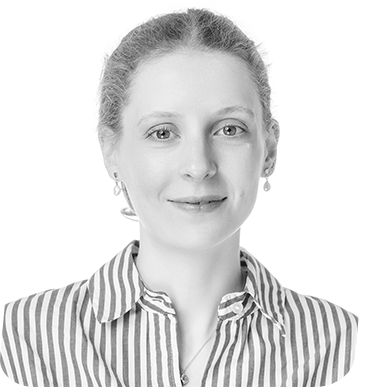
Eva holds degrees in mechanical engineering and East Asian studies, and a master of public administration in policy and innovation from UCL.
Advanced AI Researcher - Policy
Eva holds degrees in mechanical engineering and East Asian studies, and a master of public administration in policy and innovation from UCL.
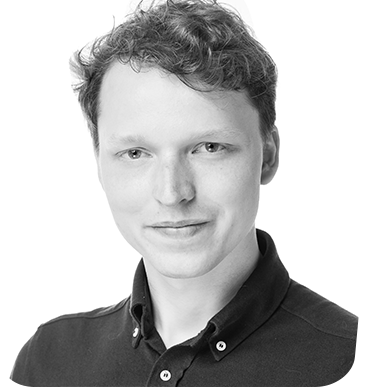
At ICFG, Sam applies his knowledge of strategic foresight and policy analysis to address the challenges associated with the governance of advanced technologies. Sam strives to combine thorough analysis with innovative problem-solving approaches, aiming to connect long-term vision with practical implementation.
Foresight Analyst
At ICFG, Sam applies his knowledge of strategic foresight and policy analysis to address the challenges associated with the governance of advanced technologies. Sam strives to combine thorough analysis with innovative problem-solving approaches, aiming to connect long-term vision with practical implementation.
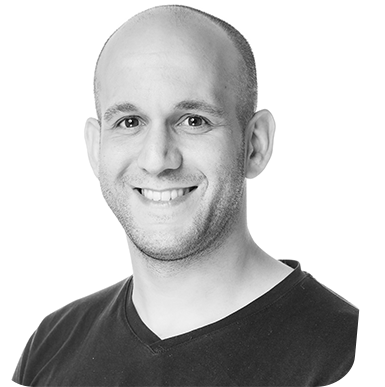
Senior Biotechnology Officer
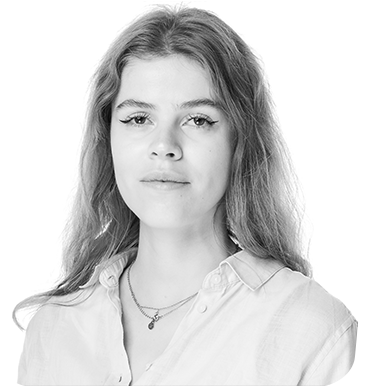
Prior to joining ICFG, she interned at international organisations in the areas of policy and governance, conflict prevention and human rights protection. Previously, she worked as a research assistant on democratic participation processes to shape regulatory guidelines on digital platforms, and as a researcher on Open Source Intelligence imagery tools to monitor and verify nuclear proliferation activity.
Roxane earned her master’s degree from Panthéon-Assas University in International law, specialising in international criminal law, humanitarian law and human rights law.
She is particularly interested in evaluating the ethical implications of policies related to new technologies, as well as exploring the connections between climate change and the emergence of conflicts.
Climate Interventions Researcher
Prior to joining ICFG, she interned at international organisations in the areas of policy and governance, conflict prevention and human rights protection. Previously, she worked as a research assistant on democratic participation processes to shape regulatory guidelines on digital platforms, and as a researcher on Open Source Intelligence imagery tools to monitor and verify nuclear proliferation activity.
Roxane earned her master’s degree from Panthéon-Assas University in International law, specialising in international criminal law, humanitarian law and human rights law.
She is particularly interested in evaluating the ethical implications of policies related to new technologies, as well as exploring the connections between climate change and the emergence of conflicts.
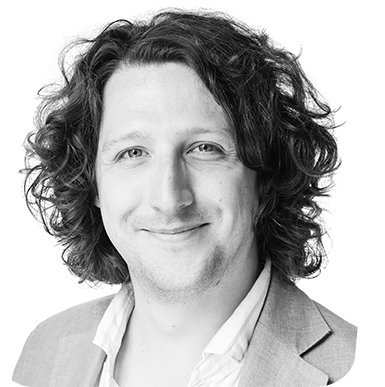
Prior to joining ICFG, he led European communications efforts for Clean Air Task Force, a science-based climate advocacy organisation, and helped shape their rapid expansion beyond the United States. Previously, he worked as a digital public affairs specialist at Edelman in Brussels where he built a team to provide creative, strategic and analytic support for organisations looking to expand their influence via digital means. His clients ranged from UN agencies to multinational corporations to regional NGOs.
Rowan began his career by working in journalism and in human rights in East Africa and was involved in startups in Berlin and Nairobi before moving into European Affairs work.
Rowan has a Master of Public Policy from the Hertie School of Governance in Berlin and BSc in Social Sciences from the University of Bath.
Chief Communications Officer
Prior to joining ICFG, he led European communications efforts for Clean Air Task Force, a science-based climate advocacy organisation, and helped shape their rapid expansion beyond the United States. Previously, he worked as a digital public affairs specialist at Edelman in Brussels where he built a team to provide creative, strategic and analytic support for organisations looking to expand their influence via digital means. His clients ranged from UN agencies to multinational corporations to regional NGOs.
Rowan began his career by working in journalism and in human rights in East Africa and was involved in startups in Berlin and Nairobi before moving into European Affairs work.
Rowan has a Master of Public Policy from the Hertie School of Governance in Berlin and BSc in Social Sciences from the University of Bath.
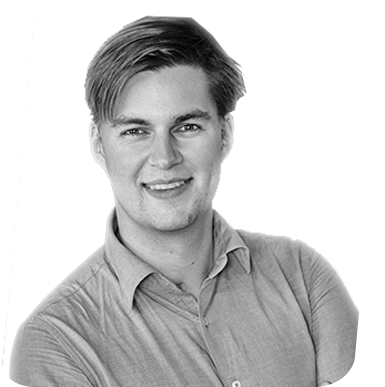
In the past, Jakob has advised American policy-makers on biosecurity as a project lead at SecureBio. He is also a former McKinsey Global Institute fellow, where he worked on climate risk, European technology competitiveness, global priorities research, and climate transitions, among other things. Jakob also co-founded the Norwegian Center for Long-Term Policy, where he currently serves as a special advisor in his spare time.
His work has been presented at the World Economic Forum Annual Meeting in Davos , the Munich Security Conference, and the 2022 Bali G20 summit, and he has informed the strategies of leading private- and public sector institutions such as BlackRock and the United States White House Office of Science and Technology Policy.
Jakob earned his master’s degree from the Norwegian University of Science and Technology, where his thesis focused on autonomous trading on power markets for renewable energy producers.
Foresight Director
In the past, Jakob has advised American policy-makers on biosecurity as a project lead at SecureBio. He is also a former McKinsey Global Institute fellow, where he worked on climate risk, European technology competitiveness, global priorities research, and climate transitions, among other things. Jakob also co-founded the Norwegian Center for Long-Term Policy, where he currently serves as a special advisor in his spare time.
His work has been presented at the World Economic Forum Annual Meeting in Davos, the Munich Security Conference, and the 2022 Bali G20 summit, and he has informed the strategies of leading private- and public sector institutions such as BlackRock and the United States White House Office of Science and Technology Policy.
Jakob earned his master’s degree from the Norwegian University of Science and Technology, where his thesis focused on autonomous trading on power markets for renewable energy producers.
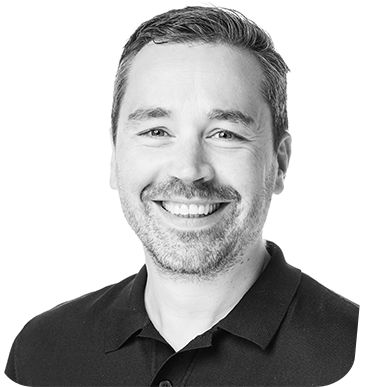
Laurens de Groot
Co-founder
Laurens is a social tech entrepreneur and environmental activist. After almost a decade with the Dutch police, he started campaigning against poaching of endangered species. He battled against illegal whaling in Antartica and rhino poachers in Africa. To generate more impact, Laurens also founded a number of innovative companies. He co-founded Skycap, a drone company specialized in environmental inspections, Silverback Protein and Smart Parks which provides high-tech solutions for park management in rural areas, mostly Africa. In addition, he works in the Dutch House of Representatives, made various programs for Discovery Channel and is the author of the book ‘Hunting the Hunters’. In 2018, he received the Tech for Global Good Laureate from the Silicon Valley Museum of Innovation.
CEO
Laurens de Groot
Co-founder
Laurens is a social tech entrepreneur and environmental activist. After almost a decade with the Dutch police, he started campaigning against poaching of endangered species. He battled against illegal whaling in Antartica and rhino poachers in Africa. To generate more impact, Laurens also founded a number of innovative companies. He co-founded Skycap, a drone company specialized in environmental inspections, Silverback Protein and Smart Parks which provides high-tech solutions for park management in rural areas, mostly Africa. In addition, he works in the Dutch House of Representatives, made various programs for Discovery Channel and is the author of the book ‘Hunting the Hunters’. In 2018, he received the Tech for Global Good Laureate from the Silicon Valley Museum of Innovation.
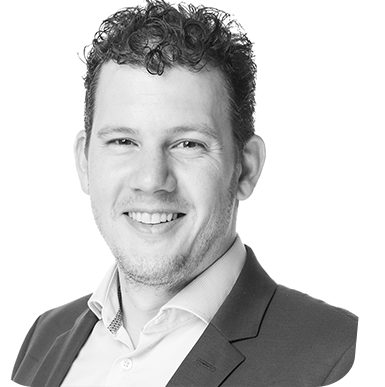
He has written for academic, broad, and decisionmaker audiences on the issues at stake in decisions and negotiations on the governance and policy of climate technologies – existing and future.
His passion is to play a part – however modest – in improving the human and environmental condition despite drastic threats from accelerating climate impacts and the integrity of work at the science-policy interface.
Climate Interventions Director
He has written for academic, broad, and decisionmaker audiences on the issues at stake in decisions and negotiations on the governance and policy of climate technologies – existing and future.
His passion is to play a part – however modest – in improving the human and environmental condition despite drastic threats from accelerating climate impacts and the integrity of work at the science-policy interface.
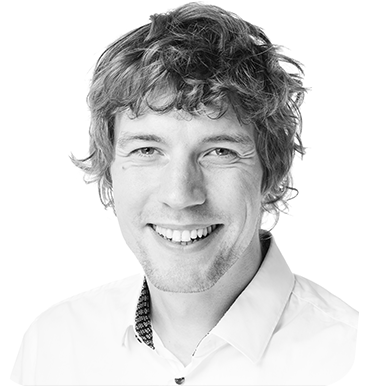
Before joining ICFG, he founded and led Effective Thesis, an international non-profit organization that assists students worldwide to build highly impactful research careers by advising them on their research topic choices. He has a Bachelor’s degree in Psychology from Masaryk University, MSc in Organizational Psychology from the University of Leeds and works toward a PhD in Sociology of Science at Charles University in Prague, where he focuses on quantitatively measuring the development of research independence and cognitive exploration. He also works in the development and analyses team at the Czech Science Foundation, where he measures the impact of research funding programmes, helps with designing new programmes, and creates evaluation mechanisms for the whole foundation. He collaborated on a couple of academic research projects and helped organise an international research symposium on academic inequalities and epistemic gaps in science funding.
Advanced AI Researcher
Before joining ICFG, he founded and led Effective Thesis, an international non-profit organization that assists students worldwide to build highly impactful research careers by advising them on their research topic choices. He has a Bachelor’s degree in Psychology from Masaryk University, MSc in Organizational Psychology from the University of Leeds and works toward a PhD in Sociology of Science at Charles University in Prague, where he focuses on quantitatively measuring the development of research independence and cognitive exploration. He also works in the development and analyses team at the Czech Science Foundation, where he measures the impact of research funding programmes, helps with designing new programmes, and creates evaluation mechanisms for the whole foundation. He collaborated on a couple of academic research projects and helped organise an international research symposium on academic inequalities and epistemic gaps in science funding.
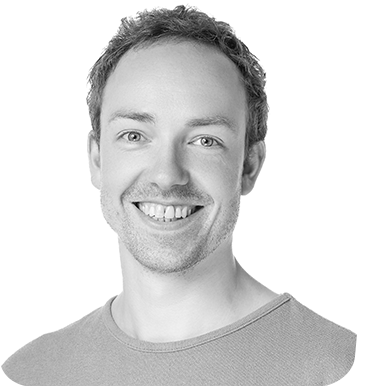
At ICFG, Daan conducts research on compute governance – the responsible governance of AI technologies through monitoring, stimulation and regulation of the AI hardware supply chain. One of Daan’s core strengths is to move fluently between different layers of abstraction: from high-level strategy to the nitty gritty technical details, and back again. Daan specialises in quantitative research and forward-looking policy. Drawing from his background in AI scenario planning, he tries to disentangle where and how compute governance can improve future AI outcomes in robust ways.
Advanced AI Researcher - Compute Governance
At ICFG, Daan conducts research on compute governance – the responsible governance of AI technologies through monitoring, stimulation and regulation of the AI hardware supply chain. One of Daan’s core strengths is to move fluently between different layers of abstraction: from high-level strategy to the nitty gritty technical details, and back again. Daan specialises in quantitative research and forward-looking policy. Drawing from his background in AI scenario planning, he tries to disentangle where and how compute governance can improve future AI outcomes in robust ways.
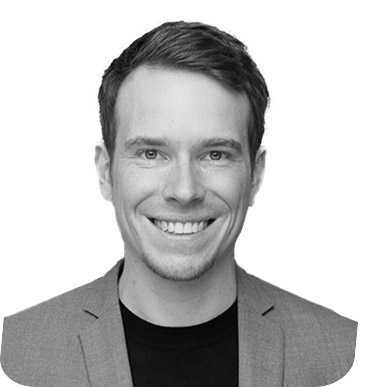
Before joining ICFG, Philipp spent a decade working in communications agencies, where he developed campaigns and managed reputational issues for government bodies, non-profits, and tech companies. He also served as a campaigner for the European Green Party during the 2014 European Elections and gained experience in several Brussels-based institutions, including the German Marshall Fund of the U.S. and the Carnegie Endowment for International Peace.
Philipp holds a Magister Degree in Political Science, Communication Science, and History from the University of Münster in Germany.
Digital Communications Manager
Before joining ICFG, Philipp spent a decade working in communications agencies, where he developed campaigns and managed reputational issues for government bodies, non-profits, and tech companies. He also served as a campaigner for the European Green Party during the 2014 European Elections and gained experience in several Brussels-based institutions, including the German Marshall Fund of the U.S. and the Carnegie Endowment for International Peace.
Philipp holds a Magister Degree in Political Science, Communication Science, and History from the University of Münster in Germany.
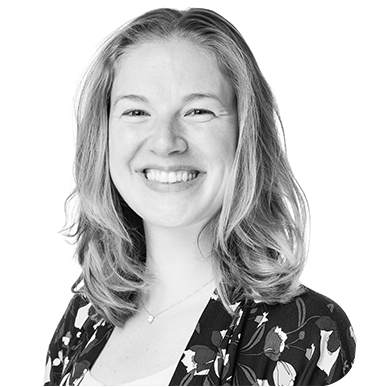
Prior to joining ICFG, she launched and led the Open Governance Network for Europe, a joint initiative of the Open Government Partnership and Democratic Society dedicated to improving democracy and governance in the European Union. Previously, she managed the Democracy, Conflict, and Governance Program at the Carnegie Endowment for International Peace in Europe, where she was responsible for international research networks and policy initiatives on democracy and governance, civil society, technology, and international affairs.
Maria has written on a range of topics, including encryption policy, technology and repression, environmental activism, democracy, and governance.
Maria earned her master’s degree from Universiteit Utrecht in The Netherlands and her bachelor’s degree from Wilfrid Laurier University in Canada.
Governance Director
Prior to joining ICFG, she launched and led the Open Governance Network for Europe, a joint initiative of the Open Government Partnership and Democratic Society dedicated to improving democracy and governance in the European Union. Previously, she managed the Democracy, Conflict, and Governance Program at the Carnegie Endowment for International Peace in Europe, where she was responsible for international research networks and policy initiatives on democracy and governance, civil society, technology, and international affairs.
Maria has written on a range of topics, including encryption policy, technology and repression, environmental activism, democracy, and governance.
Maria earned her master’s degree from Universiteit Utrecht in The Netherlands and her bachelor’s degree from Wilfrid Laurier University in Canada.

Events Manager
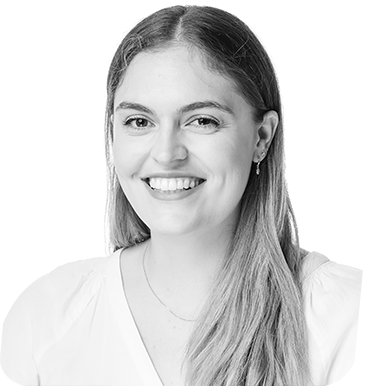
Virginia holds a PhD in sensory neuroscience from the University of Sussex, and a PGC in EU policymaking from the Vrije Universiteit Brussel. She previously worked in the Policy Foresight Unit of the European Parliamentary Research Service as a strategic foresight practitioner and futures literacy expert, with a focus on emerging technologies, behavioural insights, and scenario planning.
She has written on a range of topics: responsible research and innovation, gene editing, 5G, quantum-enabled precision medicine, mental health, and the geopolitics of health.
Her lifelong passions are the impact of technology on the mind, its role in human evolution and in shaping society, and how the science-policy interface can ensure the best possible outcomes for emerging technologies – particularly in terms of brain health.
Neurotechnology Director
Virginia holds a PhD in sensory neuroscience from the University of Sussex, and a PGC in EU policymaking from the Vrije Universiteit Brussel. She previously worked in the Policy Foresight Unit of the European Parliamentary Research Service as a strategic foresight practitioner and futures literacy expert, with a focus on emerging technologies, behavioural insights, and scenario planning.
She has written on a range of topics: responsible research and innovation, gene editing, 5G, quantum-enabled precision medicine, mental health, and the geopolitics of health.
Her lifelong passions are the impact of technology on the mind, its role in human evolution and in shaping society, and how the science-policy interface can ensure the best possible outcomes for emerging technologies – particularly in terms of brain health.
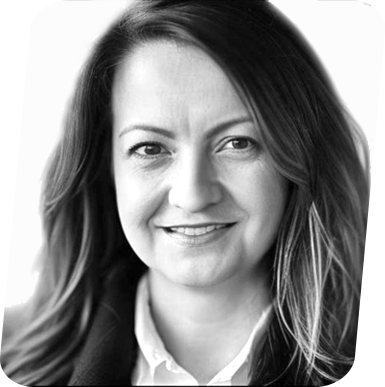
Prior to joining ICFG, Ognjenka was a Vice President for International Public Affairs at Edelman where she spearheaded some of the most complex integrated advocacy and positioning campaigns across Europe and globally spanning tech, health, food & nutrition, climate and human rights.
Ognjenka is a former legal practitioner with research experience at the University of Edinburgh and editorial experience with leading academic presses such as Oxford, Cambridge, and Routledge. She holds an LL.B from Zagreb Law School and an LL.M in European Law from Edinburgh Law School where she studied as a Chevening Scholar.
Senior Public Affairs Director
Prior to joining ICFG, Ognjenka was a Vice President for International Public Affairs at Edelman where she spearheaded some of the most complex integrated advocacy and positioning campaigns across Europe and globally spanning tech, health, food & nutrition, climate and human rights.
Ognjenka is a former legal practitioner with research experience at the University of Edinburgh and editorial experience with leading academic presses such as Oxford, Cambridge, and Routledge. She holds an LL.B from Zagreb Law School and an LL.M in European Law from Edinburgh Law School where she studied as a Chevening Scholar.
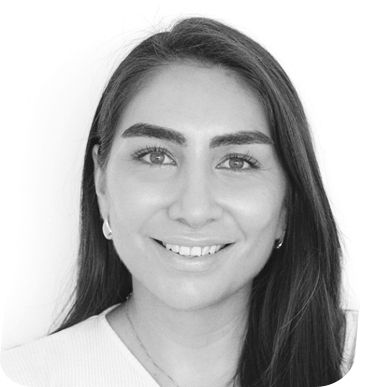
Prior to joining ICFG, she served as an official in the British government, advising a number of health ministers on genomics, bioethics and public health policy in both domestic and global contexts. Her experience includes leading work on reforming the health architecture through landmark legislation.
Ashley has experience across pandemic prevention, preparedness and response. During the pandemic, she was part of the COVID-19 Taskforce, supporting central government efforts to manage hospital capacity in England.
She earned her Master in Public Affairs from Science Po Paris and her bachelor’s degree in International Relations from the University of Westminster.
Biotechnology Officer - Policy
Prior to joining ICFG, she served as an official in the British government, advising a number of health ministers on genomics, bioethics and public health policy in both domestic and global contexts. Her experience includes leading work on reforming the health architecture through landmark legislation.
Ashley has experience across pandemic prevention, preparedness and response. During the pandemic, she was part of the COVID-19 Taskforce, supporting central government efforts to manage hospital capacity in England.
She earned her Master in Public Affairs from Science Po Paris and her bachelor’s degree in International Relations from the University of Westminster.
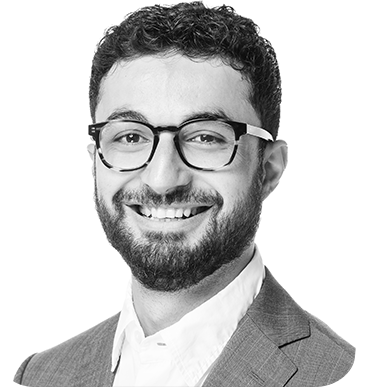
In addition to being a trained lawyer, Onur holds a PhD in political communication from Ghent University, with a focus on media systems, pluralism, and polarization.
Governance Analyst - Policy
In addition to being a trained lawyer, Onur holds a PhD in political communication from Ghent University, with a focus on media systems, pluralism, and polarization.
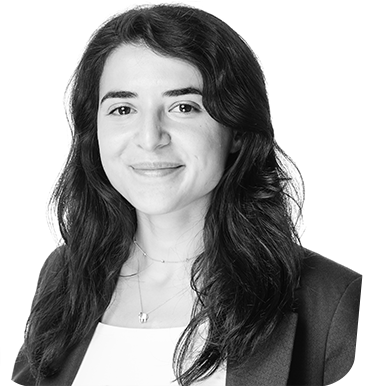
Prior to joining ICFG, she worked and interned in the industry in areas like digital ad fraud, digital product management and monitoring & evaluation. She was a member of the Global Scanning Network at the Copenhagen Institute for Future Studies for a year, building experience in futures-research. Most recently, she worked as a recruitment analyst for an artificial intelligence hardware company and still gives independent consultancy on talent and people analytics. She’s the founder of AI Safety Turkey, supporting local student groups interested in AI safety and governance.
Bengusu earned her master’s degree from Columbia University in Quantitative Methods in Social Sciences with a thesis on user perceptions on recommendation algorithms, and her bachelors from Sabanci University in Industrial Engineering and Psychology.
She enjoys thinking about how humanity’s future will shape in her free time as well. She had a podcast on the future of technology and several books published in Turkish. She has one science-fiction book, Ancient Man, translated and published in 2022.
Advanced AI Researcher
Prior to joining ICFG, she worked and interned in the industry in areas like digital ad fraud, digital product management and monitoring & evaluation. She was a member of the Global Scanning Network at the Copenhagen Institute for Future Studies for a year, building experience in futures-research. Most recently, she worked as a recruitment analyst for an artificial intelligence hardware company and still gives independent consultancy on talent and people analytics. She’s the founder of AI Safety Turkey, supporting local student groups interested in AI safety and governance.
Bengusu earned her master’s degree from Columbia University in Quantitative Methods in Social Sciences with a thesis on user perceptions on recommendation algorithms, and her bachelors from Sabanci University in Industrial Engineering and Psychology.
She enjoys thinking about how humanity’s future will shape in her free time as well. She had a podcast on the future of technology and several books published in Turkish. She has one science-fiction book, Ancient Man, translated and published in 2022.
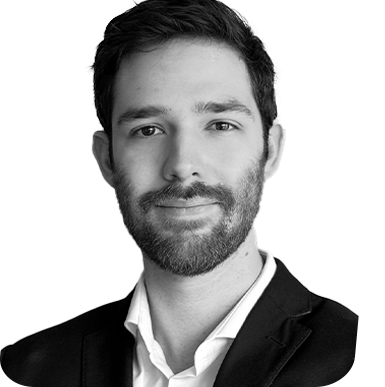
Bálint spoke and published on a range of topics, including the EU AI Act, AI risk management best practices, and national AI strategies.
He earned his Master of Public Policy degree from the University of Oxford and his bachelor’s degree in Economics and Public Policy from Leiden University College.
Senior AAI Researcher - Policy
Bálint spoke and published on a range of topics, including the EU AI Act, AI risk management best practices, and national AI strategies.
He earned his Master of Public Policy degree from the University of Oxford and his bachelor’s degree in Economics and Public Policy from Leiden University College.
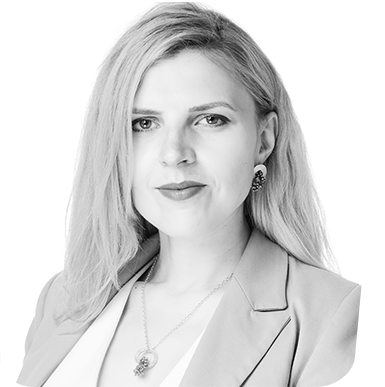
She holds a PhD in Biological Sciences from the University of Cambridge where she lead research in the are of immunogenomics and infectious diseases and worked on projects for mobile diagnostic testing in Sierra Leone. Her realisation that science’s impact is contingent on supportive policies and financial ecosystems led her to a number of roles in international organisations, notably at UNAIDS, Gavi, the Vaccine Alliance, and the World Health Organisation focusing on innovations, vaccine investment, and health policy.
After a diverse international experience, Velislava served as a Deputy Minister of Foreign Affairs in her home country Bulgaria where she was responsible for European affairs, multilateral organisations and economic diplomacy.
She holds a PhD in Biological Sciences from the University of Cambridge where she lead research in the are of immunogenomics and infectious diseases and worked on projects for mobile diagnostic testing in Sierra Leone. Her realisation that science’s impact is contingent on supportive policies and financial ecosystems led her to a number of roles in international organisations, notably at UNAIDS, Gavi, the Vaccine Alliance, and the World Health Organisation focusing on innovations, vaccine investment, and health policy.
After a diverse international experience, Velislava served as a Deputy Minister of Foreign Affairs in her home country Bulgaria where she was responsible for European affairs, multilateral organisations and economic diplomacy.
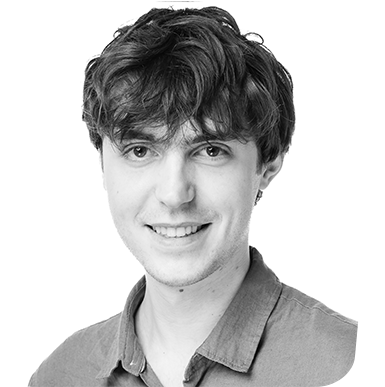
Advanced AI Analyst
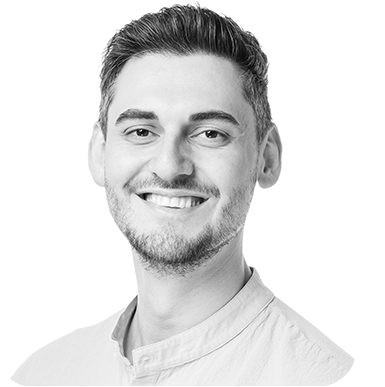
At the forefront of transdisciplinary research in advanced artificial intelligence, Max brings a unique blend of expertise to ICFG. With a robust academic background encompassing AI, policy analysis, sociology, philosophy, and cognitive science, he is adept at navigating the complex terrain of international AI governance.
Max applies a firm technical understanding as a foundation for strategic reasoning. His work involves not just comprehending AI’s current capabilities, but also anticipating its future implications. This forward-looking perspective is crucial in devising effective governance strategies for AI technologies that are rapidly evolving. Max excels in reasoning from first principles, a skill that enables him to dissect and understand the underpinnings of AI development and their societal impacts. This approach is vital for envisioning diverse future scenarios and potential governance interventions that are both pragmatic and effective.
Advanced AI Director
At the forefront of transdisciplinary research in advanced artificial intelligence, Max brings a unique blend of expertise to ICFG. With a robust academic background encompassing AI, policy analysis, sociology, philosophy, and cognitive science, he is adept at navigating the complex terrain of international AI governance.
Max applies a firm technical understanding as a foundation for strategic reasoning. His work involves not just comprehending AI’s current capabilities, but also anticipating its future implications. This forward-looking perspective is crucial in devising effective governance strategies for AI technologies that are rapidly evolving. Max excels in reasoning from first principles, a skill that enables him to dissect and understand the underpinnings of AI development and their societal impacts. This approach is vital for envisioning diverse future scenarios and potential governance interventions that are both pragmatic and effective.
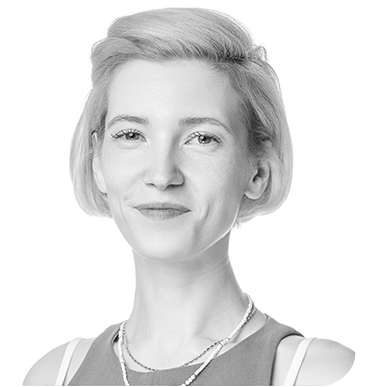
Foresight Analyst
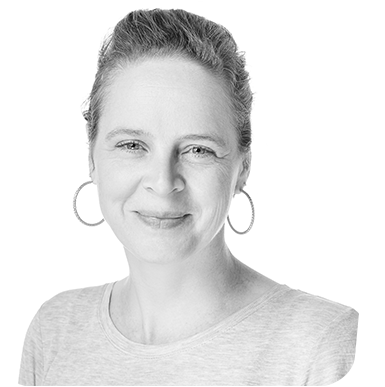
In the past, she worked in an HR capacity for different companies ranging from logistics, to healthcare and IT consultancy.
Anneleen holds a degree in history from the University of Leuven, Belgium. She learned the HR trade by taking specific courses, from experienced colleagues and by learning from doing.
People & Culture Director
In the past, she worked in an HR capacity for different companies ranging from logistics, to healthcare and IT consultancy.
Anneleen holds a degree in history from the University of Leuven, Belgium. She learned the HR trade by taking specific courses, from experienced colleagues and by learning from doing.
Fellows
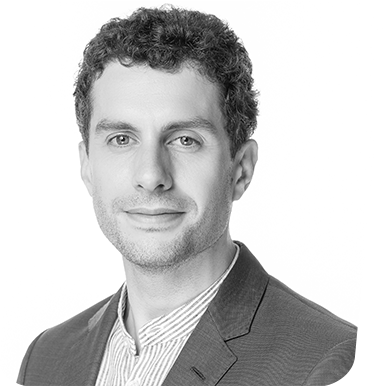
At Amazon Web Services, he helped the United Nations respond to Covid-19, he launched an Institute to train government leaders in digital transformation, and a quantum technologies partnership with Harvard.
At the European Commission, he was the youngest policy assistant to a Director-General. As a member of the management team of the European Political Strategy Center – the EU Commission’s in-house think tank – he provided strategic advice, policy analysis and foresight as part of the team supporting the President.
Leonardo has been named a Responsible Leader by the BMW Foundation and a 30 Under 30 by Forbes. He was an Aspen Institute Jr. Fellow, a Future World Fellow at IE University, and a World Economic Forum Global Shaper. He has a Master of Public Policy from the University of Oxford.”
Senior Fellow & Interim Quantum Program Lead
At Amazon Web Services, he helped the United Nations respond to Covid-19, he launched an Institute to train government leaders in digital transformation, and a quantum technologies partnership with Harvard.
At the European Commission, he was the youngest policy assistant to a Director-General. As a member of the management team of the European Political Strategy Center – the EU Commission’s in-house think tank – he provided strategic advice, policy analysis and foresight as part of the team supporting the President.
Leonardo has been named a Responsible Leader by the BMW Foundation and a 30 Under 30 by Forbes. He was an Aspen Institute Jr. Fellow, a Future World Fellow at IE University, and a World Economic Forum Global Shaper. He has a Master of Public Policy from the University of Oxford.”
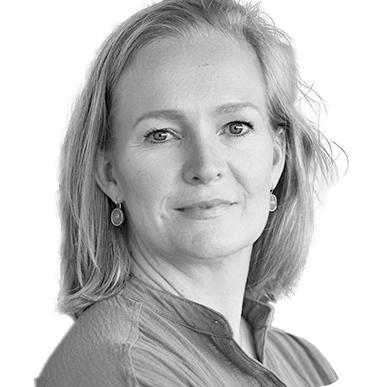
Between 2009 and 2019, she served as a member of European Parliament for the Dutch liberal democratic party where she focused on trade, foreign affairs, and technology policies. Marietje is an (advisory) board member with a number of nonprofits including MERICS, ECFR, ORF, and AccessNow.
Since December 2022, Marietje has been advising ICFG as a Senior Fellow for its work on emerging technology governance.
She writes a monthly column for the Financial Times and served as (independent) special advisor to the executive vice-president of the European Commission, Margrethe Vestager. Marietje serves on French President Macron’s “Tech Thinkers” Advisory Council.
Senior Fellow - Governance
Between 2009 and 2019, she served as a member of European Parliament for the Dutch liberal democratic party where she focused on trade, foreign affairs, and technology policies. Marietje is an (advisory) board member with a number of nonprofits including MERICS, ECFR, ORF, and AccessNow.
Since December 2022, Marietje has been advising ICFG as a practice lead for its work on emerging technology governance.
She writes a monthly column for the Financial Times and served as (independent) special advisor to the executive vice-president of the European Commission, Margrethe Vestager. Marietje serves on French President Macron’s “Tech Thinkers” Advisory Council.
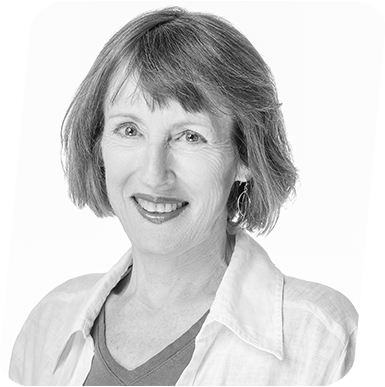
She was previously the senior strategy director for the Carnegie Climate Governance (C2G) Initiative, which sought to advance policy discussions and international governance of solar geoengineering and large-scale carbon removals. Cynthia has written widely on these topics including in Foreign Policy, Science Magazine, and Fortune and spoken at the World Bank, the Vatican, American Geophysical Union, Columbia and Yale Universities, among others.
Cynthia previously served at the UN as the head of strategic climate communications and chief speechwriter on climate change for United Nations Secretary-General Ban Ki-moon from 2009-2016. She also supported and advised the Secretary-General during the UNFCCC negotiations, including the landmark Paris climate change agreement in 2015.
She received her M.A. from Georgetown, was a fellow at the Children’s Investment Fund Foundation, and served on the board of GreenFaith, a multi-faith climate advocacy organization.
Senior Fellow – Climate Interventions
She was previously the senior strategy director for the Carnegie Climate Governance (C2G) Initiative, which sought to advance policy discussions and international governance of solar geoengineering and large-scale carbon removals. Cynthia has written widely on these topics including in Foreign Policy, Science Magazine, and Fortune and spoken at the World Bank, the Vatican, American Geophysical Union, Columbia and Yale Universities, among others.
Cynthia previously served at the UN as the head of strategic climate communications and chief speechwriter on climate change for United Nations Secretary-General Ban Ki-moon from 2009-2016. She also supported and advised the Secretary-General during the UNFCCC negotiations, including the landmark Paris climate change agreement in 2015.
She received her M.A. from Georgetown, was a fellow at the Children’s Investment Fund Foundation, and served on the board of GreenFaith, a multi-faith climate advocacy organization.

Until September 2023, Pawel was director general of the Human Brain Project and CEO of EBRAINS, the Research Infrastructure for brain studies.
Paweł believes that the 21st Century will be marked by the centrality of the brain. He is a passionate advocate for active brain health and mental health policies, an ardent supporter of innovation in the field, and a believer in the need for greater cognitive welfare. He shares a conviction that reliance on brain capital will be a key driver of societal progress and harmony in the next decades.
He is also a member of the Strategic Council of the European Policy Centre, a member of the Steering Board of the Brain Capital Alliance, which is a public-private-people partnership advancing brain capital activities in policy, economics, and investing, and he is a member of the Steering Board of the OECD Neuroscience-inspired Policy Initiative.
Paweł comes from the South-Eastern Polish town of Rzeszów and is a dual Polish-Belgian citizen, based in Brussels, Belgium.
Senior Fellow - Neurotechnology
Until September 2023, Pawel was director general of the Human Brain Project and CEO of EBRAINS, the Research Infrastructure for brain studies.
Paweł believes that the 21st Century will be marked by the centrality of the brain. He is a passionate advocate for active brain health and mental health policies, an ardent supporter of innovation in the field, and a believer in the need for greater cognitive welfare. He shares a conviction that reliance on brain capital will be a key driver of societal progress and harmony in the next decades.
He is also a member of the Strategic Council of the European Policy Centre, a member of the Steering Board of the Brain Capital Alliance, which is a public-private-people partnership advancing brain capital activities in policy, economics, and investing, and he is a member of the Steering Board of the OECD Neuroscience-inspired Policy Initiative.
Paweł comes from the South-Eastern Polish town of Rzeszów and is a dual Polish-Belgian citizen, based in Brussels, Belgium.
Board of Directors
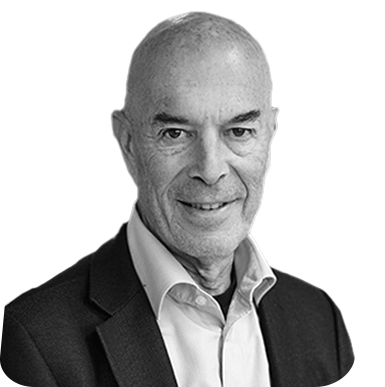
Prof. Ian Goldin
Treasurer
Ian Goldin is Professor of Globalisation and Development at the University of Oxford, Professional Fellow at Balliol College, Oxford University, and from 2006 to 2016 was the founding Director of Oxford University’s interdisciplinary Oxford Martin School.
He currently leads the Oxford Martin research programs on Technological and Economic Change, Future of Work and Future of Development. From 2001 to 2006 Ian was Vice President of the World Bank and the Group’s Director of Policy and Special Representative at the United Nations. From 1996 to 2001, he was economic advisor to President Mandela and the Chief Executive of the Development Bank of Southern Africa (DBSA), transforming it to become the largest investor in infrastructure and over 500 municipalities in the 14 countries of Southern Africa.
Previously, Ian served as Principal Economist at the EBRD and as the Director of Programmes at the OECD Development Centre. He has an MSCs from the London School of Economics and an MA and Doctorate from the University of Oxford.
Ian has been knighted by the French Government and received numerous awards. He has published over 60 journal articles and 23 books. His most recent is Rescue: From Global Crisis to a Better World. His previous books include Terra Incognita: 100 Maps to Survive the Next 100 Years, Age of Discovery: Navigating the Storms of our Second Renaissance and The Butterfly Defect: Why Globalization Creates Systemic Risks and What to Do, in which he in 2014 predicted that a global pandemic was the most likely cause of the next financial crisis. Other books include Development: A Very Short Introduction; and Is the Planet Full? He has authored and presented three BBC Documentary Series After The Crash; Will AI Kill Development? and The Pandemic that Changed the World.
Ian Goldin has provided advisory services to the IMF, UN, EU, OECD and over 100 Fortune 500 Companies and has served as a Non-executive Director on six globally listed companies, including as the Senior Independent Director and Chairing a wide rage of Board Committees. Ian is an acclaimed speaker at TED, Google Zeitgeist, WEF and other meetings and is Chair of the core-econ.org initiative to transform economics.
Prof. Ian Goldin
Treasurer

Laurens de Groot
Co-founder
Laurens is a social tech entrepreneur and environmental activist. After almost a decade with the Dutch police, he started campaigning against poaching of endangered species. He battled against illegal whaling in Antartica and rhino poachers in Africa. To generate more impact, Laurens also founded a number of innovative companies. He co-founded Skycap, a drone company specialized in environmental inspections, Silverback Protein and Smart Parks which provides high-tech solutions for park management in rural areas, mostly Africa. In addition, he works in the Dutch House of Representatives, made various programs for Discovery Channel and is the author of the book ‘Hunting the Hunters’. In 2018, he received the Tech for Global Good Laureate from the Silicon Valley Museum of Innovation.
Laurens de Groot
Co-founder
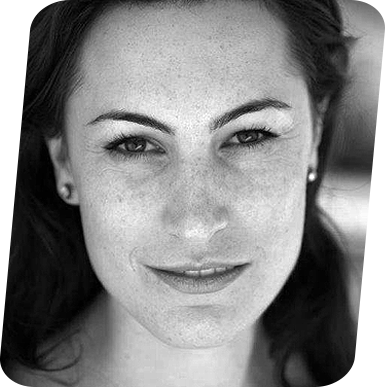
Cressida Pollock
Secretary
Cressida Pollock is a purpose driven leader and deep generalist who has worked on implementing transformations across organizations and systems. She has advised national and multinational companies, governments and NGOs on strategic challenges and complex transitions.
Her current work focuses on the deployment of philanthropic and commercial capital to shift the current trajectory on climate change and build towards long-term sustainable economic systems.
She led Quadrature Climate Foundation during its initial three years from start up to established philanthropic grantmaker, establishing it as a leading institution in climate philanthropy with granting commitments of over $500m. Prior to that she was the Chief Executive of English National Opera where she led the rescue and turnaround of the company from 2015-2018. She has previously worked at McKinsey and was founding member of Somerset Capital Management, an emerging markets focused investment fund.
Cressida is a board member for the International Rescue Climate UK, the Climate Breakthrough Project, and is an Advisory Board member for the Smith School of Enterprise and Environment. She holds an undergraduate degree from Cambridge and an MBA from the Massachusetts Institute of Technology.
Cressida Pollock
Secretary
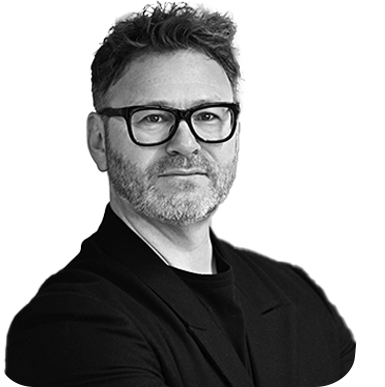
Steven Schuurman
Co-founder & Chairman
Steven is an internationally acclaimed high-tech entrepreneur and CEO. He is best known for founding two of the most successful open-source software companies in history, SpringSource (acquired by VMware in 2009) and Elastic. Elastic’s October 2018 IPO was described on the New York Stock Exchange as one of the most successful launches in the past 20 years. In 2014, Steven co-founded the Hollywood-based media and entertainment company Atlantis Entertainment. Steven is also the founder and chairman of the Future NL foundation and is on the board of the Rijksmuseum.
Steven Schuurman
Co-founder & Chairman
